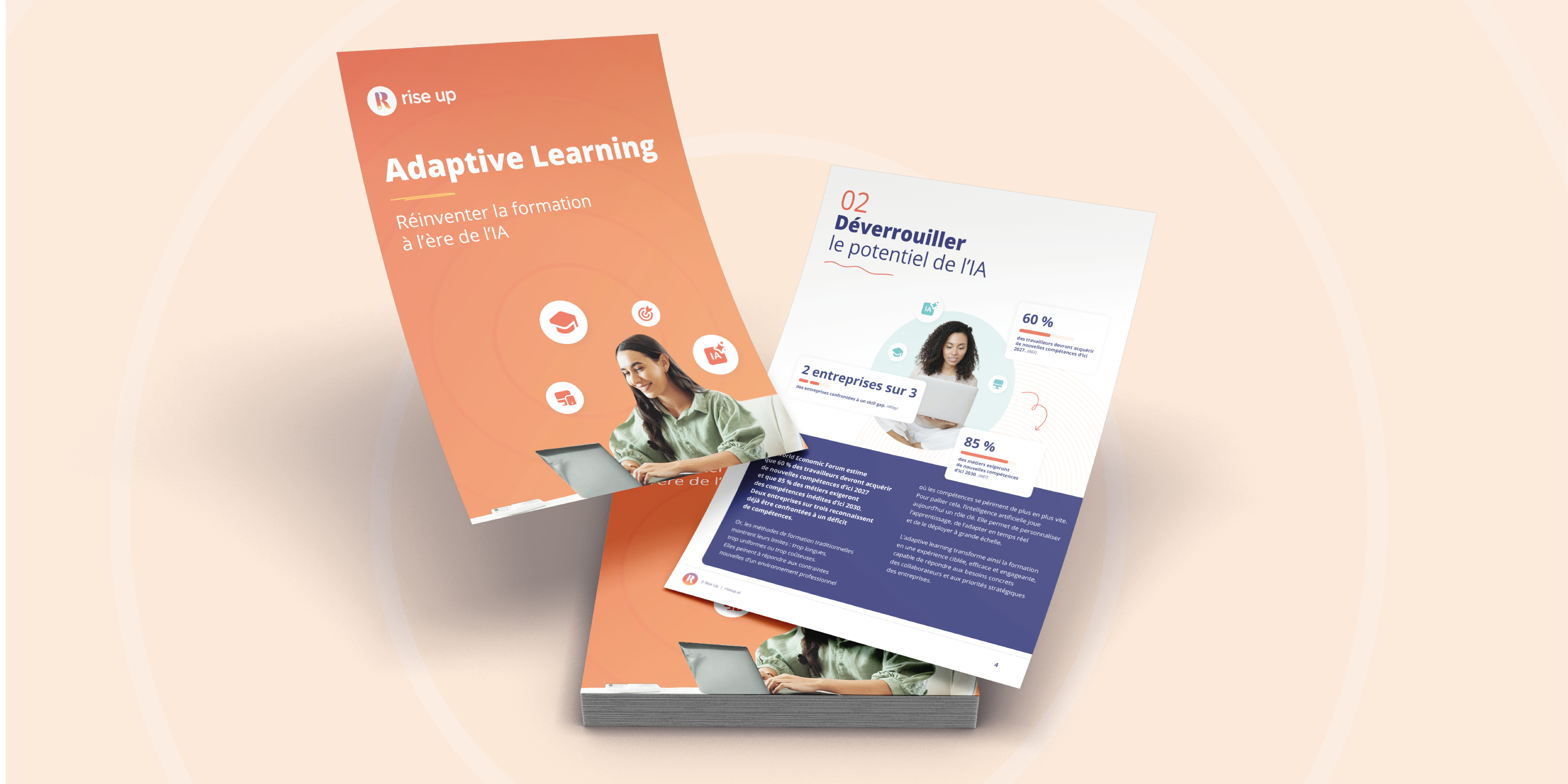It’s not all about the money: Improving stress in the finance sector through learning and development
6 minutes of reading | 2023-05-31
Camilia Miccolis Leader of UKI & Netherlands at Rise Up, discusses how we can reduce work-related stress in the finance sector through learning and development strategies.
Work and stress seem to have a lot in common. Some of us might argue that stress is a natural symptom of a thriving workplace. We might have even heard of people who claim to function better under stress, working harder and achieving more than they would in a calmer environment.
But others might not see it so positively, with almost a third of financial services professionals planning to leave the industry specifically because of the high-pressure environment.
When we consider the personal experiences of some employees, a lifestyle fuelled by workplace stress sound unbearable:
“I can’t sleep anymore because my anxiety levels are through the roof”.
“My body physically hurts all the time and mentally I’m in a really dark place”.
“Being unemployed is less frightening to me than what my body might succumb to if I keep up this lifestyle”.
Although these anecdotes might sound akin to frontline emergency service workers, they come from a very specific sector. A lot of us might associate it with glitzy offices, swanky suits, and big salaries – but the reality is very different. Welcome to the highly stressful world of working in finance.
Understanding stress in the finance sector
These harrowing quotes come from a 2021 internal survey of junior bankers at Goldman Sachs. Other highlights include staff giving a figure out of 10 to describe how the ‘stresses of work have been detrimental to both their mental and physical health’, with the mental health score dropping from 8.8 to 2.8 within the first year on the job.
There are even specialist help organizations for finance staff, such as CABA, an occupational charity offering mental health information and support to workers in the ICAEW community. If such specific charities need to exist, we cannot deny that there’s a serious problem in the sector.
A study by Perkbox asked people how workplace stress had affected them, finding that ‘69% of those working in finance reported suffering from significant levels of work-related stress’. This was more than any other industry.
While many factors contribute to or cause stress, certain particularities of the finance sector have a stronger impact on employee well-being:
- Feeling under a lot of pressure and in competition with colleagues.
- Being overloaded with tasks and working long hours without much sleep.
- Having no control over job security and living in fear of recent layoffs.
- Lacking support from busy line managers.
While some people might love working in the fast-paced financial world, anyone can encounter a stressful period. While initiatives like mandatory annual leave, flexible schedules, and limiting weekend working hours are becoming more common, these feel more like reactionary than preventative measures.
Finance employees deserve more than support services designed to help stress at crisis points. We need to focus on fighting to prevent the root causes – pressure, overload, lack of support, and fear of job security – before we can start piecing together the solution. For company owners, managers, and most importantly, our finance staff, some answers sit within the sphere of learning and development (L&D).
Building bridges with learning and development
With Stress Awareness Month having just passed by in April and Mental Health Awareness Week in May, HR and People departments in the finance sector scrambled to think up schemes aimed at helping stressed-out employees. But L&D departments could play a crucial role in this too.
Surveys and research by Gartner found that 70% of UK employees have not mastered the skills they need for their jobs today. Without the correct skills, it becomes impossible to cope with deadlines and overwhelming volumes of work. With this in mind, empowering employees through training can help to prevent stress. If employees are left playing catch-up without having learned proper processes, this can lead to a loss of confidence. It could also mean working extra hours or weekends to keep up with workloads. Over time, these hairline fractures to our psyche can turn into deep furrows in our mental well-being.
To solve this, implementing a strong L&D culture from day one allows staff to grow, learn and feel confident. Learning new skills is even one of the five steps to mental well-being recommended by the NHS.
As well as improving stress levels, learning through training is a way of:
- Boosting self-confidence and raising self-esteem.
- Helping people to build a stronger sense of purpose.
- Allowing people to connect and share with others.
However, finance firms don’t need to dive headfirst into a wide-ranging L&D program, which could overwhelm staff even further and take them away from their deadlines. Given the level of compliance training and audits already on their desks, it’s important to be selective on what additional learnings you assign. An important point is streamlining and personalizing the training on offer. Ask them what training they need to succeed. Everything on offer must be bespoke, relevant, and valuable – L&D is never a tick-box exercise.
Managers should learn to manage layoff anxiety
When it comes to job cuts, this is slightly more complicated to solve through L&D. From Citigroup to Stripe to Morgan Stanley, financial firms have made headlines in slashing thousands of positions worldwide. Layoff anxiety is a very real and tangible state of mind for staff, but again we can use L&D to help reassure people. Championing managers to take on training to become mental health first-aiders, with an astute eye for noticing the first signs of stress of any kind, is yet another facet of L&D adding value. With an elevated sense of support from managers, we’re more likely to feel comfortable opening up about concerns in other aspects of work. In turn, employees should no longer feel the need to bottle up work-related stress, breaking the chain of ongoing causes.
In this tumultuous period for finance sector employees, companies and firms need to reconsider exactly what L&D can contribute. This industry needs to evolve to be seen as a sector that cares about its staff's well-being. While it might not be able to shake off its infamously competitive and high-pressured environments, effective and well-structured training can be used to support and empower staff through stressful times.
Want to learn more about the learning solution built for financial companies? Discover here.






